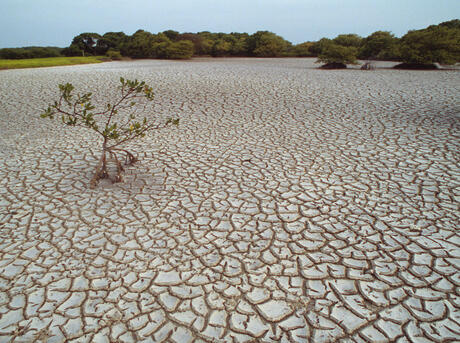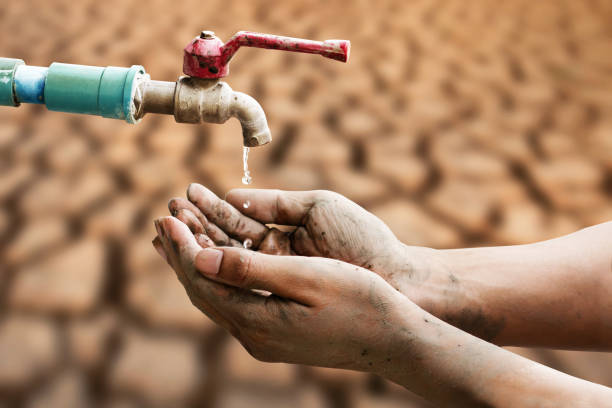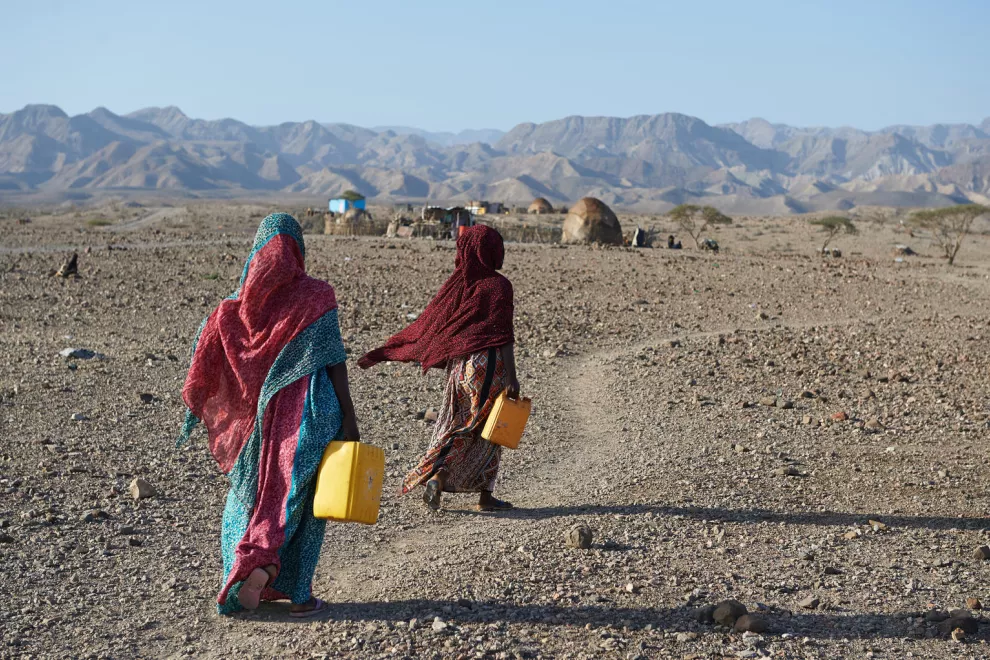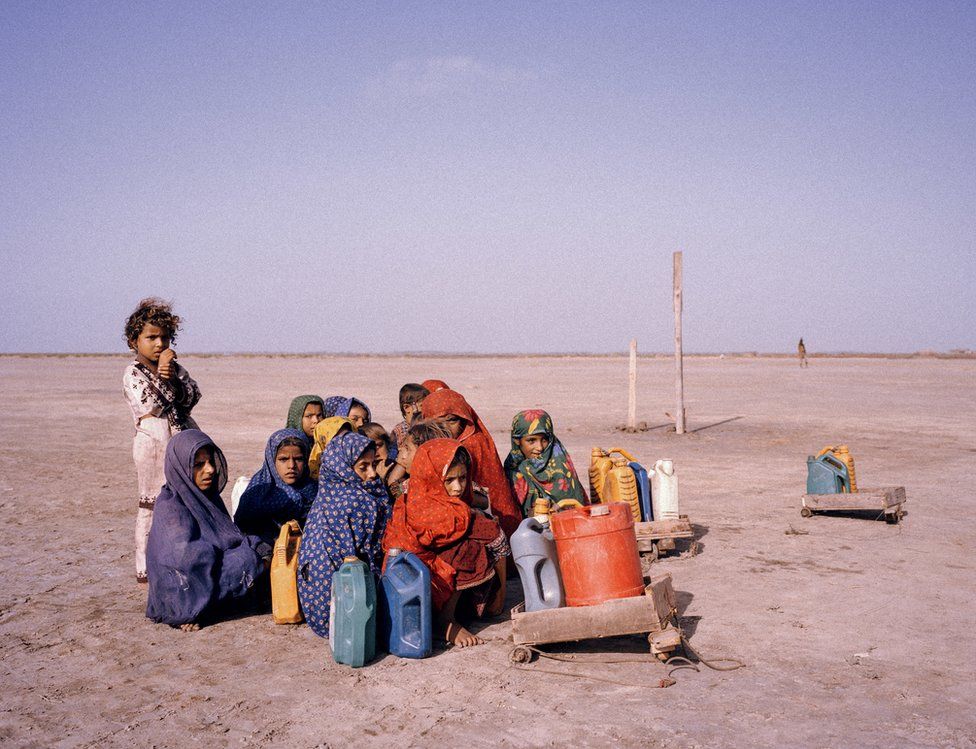
THE GLOBAL WATER CRISIS
A Ripple Effect Demanding Change
The Global Water Crisis isn’t just about a faucet running dry. It’s a ripple effect impacting everything from our dinner plates to public health. Imagine a world where farmers struggle to grow crops due to dried-up rivers, leading to food shortages and price hikes. This lack of water also creates sanitation challenges, breeding grounds for diseases. Climate change acts like an accelerant, intensifying the crisis with erratic weather patterns and melting glaciers. The burden falls heaviest on the poorest, forced to travel long distances for a single drop of water. Women and children often bear the brunt, sacrificing education and work to collect water. But there’s hope! Investing in renewable energy sources like solar and wind power reduces reliance on water-intensive fossil fuels. Education on water management at home and in agriculture can drastically cut waste. Communities worldwide are already taking action, from rainwater harvesting to innovative irrigation techniques. Technology offers solutions like desalination plants for seawater and smart meters to track leaks. Every drop counts – simple steps like fixing leaky faucets and watering lawns efficiently can make a big difference. By raising awareness and advocating for strong water governance policies, we can turn the tide on this crisis. Remember, even small actions create ripples of change. Let’s work together to ensure a water-secure future for all.
Beyond the Tap: The Hidden Costs of Water Scarcity
The Global Water Crisis goes beyond the inconvenience of an empty tap. It carries hidden costs impacting the very foundation of our lives. Imagine empty rivers leading to failing crops, causing food shortages and price spikes. Without clean water, sanitation becomes a challenge, and diseases spread rapidly. This crisis disproportionately affects the poorest communities, forcing women and children to spend hours collecting water instead of attending school or working. It’s a domino effect with devastating consequences for health, food security, and social equity. By addressing water scarcity, we’re not just ensuring access to a basic need, we’re safeguarding the well-being of our planet and its people.
A Looming Crisis: Climate Change Fuels the Fire
The crisis isn’t static. Climate change acts like a fire accelerant, intensifying water scarcity. Melting glaciers and erratic weather patterns disrupt natural water cycles, leaving some areas flooded and others parched.

When the Wells Run Dry: The Human Cost of Unequal Access
The burden of water scarcity isn’t shared equally. Often, the poorest communities bear the brunt, forced to travel long distances for a single drop. Women and children are disproportionately affected, spending hours collecting water instead of attending school or working. It’s a human rights issue demanding urgent action
Turning the Tide: Charting a Course Towards a Sustainable Future
But there’s hope! We can turn the tide on this crisis. Here’s how:
- Sustainable Solutions: Investing in renewable energy sources like solar and wind power reduces reliance on fossil fuels, a major contributor to climate change. This, in turn, helps conserve water resources.
Beyond Infrastructure: Building dams and treatment plants are crucial, but education is equally important. Teaching water management practices at home and in agriculture can drastically reduce waste

A Drop of Hope: Inspiration from Communities Taking Action
We don’t have to wait for a silver bullet. Communities worldwide are already addressing the challenge. From rainwater harvesting projects to innovative irrigation techniques, these stories offer a drop of hope.
Innovation for a Water-Secure Future: Technology as a Tool
Technology holds immense potential. Desalination plants can turn seawater into freshwater, while smart meters help track water usage and identify leaks. These innovations can pave the way for a water-secure future.
From Waste to Resource: Every drop counts. Simple steps like fixing leaky faucets, taking shorter showers, and watering lawns efficiently can make a big difference. Let’s turn water conservation into a game-changer!
The Power of Awareness: Educating consumers about the true value of water is crucial. Understanding the environmental and human costs can inspire us to make conscious choices.
Beyond Borders: A Global Challenge Needs A Global Response
Water scarcity is a borderless crisis. International collaboration is vital for sharing knowledge, resources, and developing sustainable water management strategies.
Policy and Advocacy: We need strong policies that promote water conservation and hold polluters accountable. Let’s push for change in water governance!

A Call to Action: Be Part of the Solution
The Global Water Crisis is daunting, but remember, even small actions create ripples of change. Here’s what you can do:
- Support organizations working on water conservation and access projects.
- Talk to your local representatives about water policy issues.
- Make water conservation a priority in your daily life.
- Spread awareness and inspire others to join the movement.
- Support the cause: Donate to organizations working on water conservation and access projects. Every bit helps in funding vital initiatives
- Talk is power: Discuss water scarcity with friends, family, and colleagues. Raise awareness and inspire others to take action.
- Be a water warrior at home: Fix leaky faucets, take shorter showers, and water your lawn efficiently. Every drop saved makes a difference.
- Embrace sustainable choices: Opt for water-efficient appliances and gardening practices. Small changes in your daily routine can create a ripple effect.
- Educate yourself: Learn more about the Global Water Crisis and its impact. Knowledge empowers you to advocate for change.
- Contact your representatives: Voice your concerns about water policy and urge them to support sustainable water management solutions.
- Invest wisely: Consider supporting companies committed to water conservation practices. Your purchasing power can make a statement.
- Spread the word: Share informative articles and resources about the water crisis on social media. Get others involved in the conversation.
- Volunteer your time: Organizations often need help with water conservation projects, fundraising events, or raising awareness campaigns.
- Organize a community event: Host a film screening, discussion panel, or clean-up event to bring your community together for a cause.
- Challenge yourself: Participate in a water-saving challenge with friends or family. Motivate each other to conserve water in everyday tasks.
- Embrace innovation: Explore water-saving technologies like rainwater harvesting systems or greywater reuse systems for your home.
- Lead by example: Encourage your workplace or school to adopt water-saving practices and educate others on its importance.
- Support sustainable agriculture: Choose to buy products from farms that utilize water-efficient irrigation techniques.
- Think globally, act locally: Get involved in local water conservation initiatives and support organizations working in water-stressed regions around the world.

Hey just wanted to give you a quick heads up and let you know a
few of the pictures aren’t loading correctly. I’m not sure why but I think its
a linking issue. I’ve tried it in two different internet browsers
and both show the same outcome.
Also visit my web blog: John E. Snyder